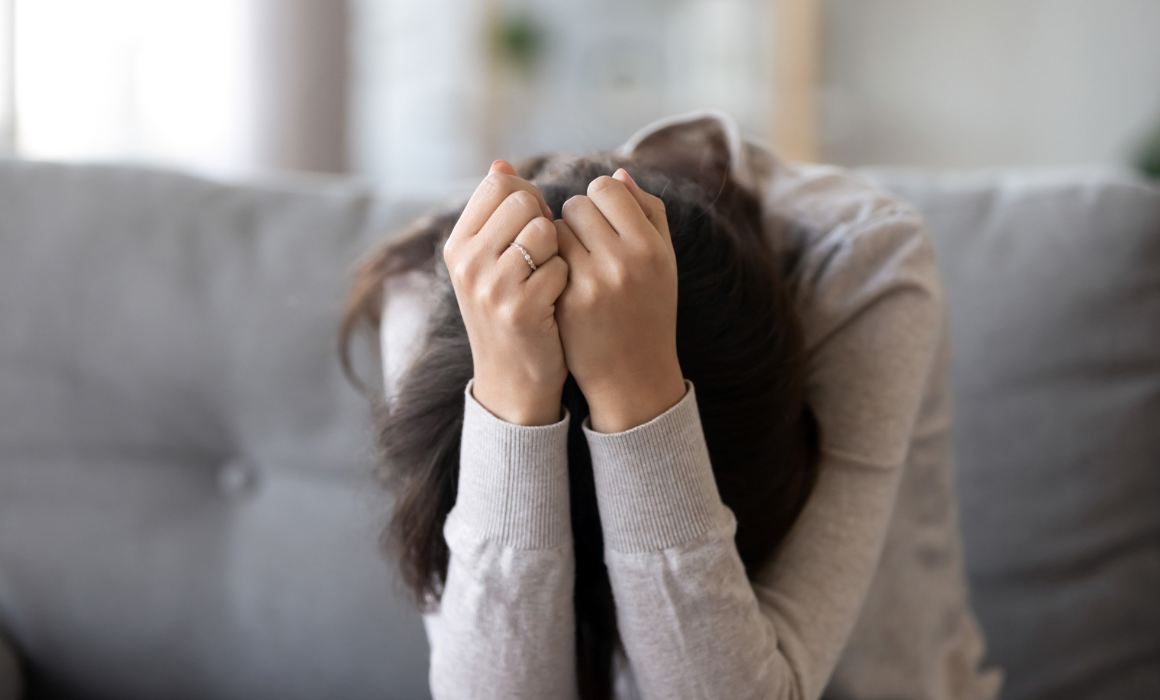
When you’ve been through a traumatic life experience like a cancer diagnosis, you may find that you are more easily “triggered” by certain things. What we mean by “triggered” is that things you come across in daily life can cause you to feel scared, anxious and sad. This is a normal reaction and there are tools and strategies to help you cope with these situations. In this article Professor Nazanin Derakhshan, a Professor of Experimental Psychopathology at the University of Reading, explains more and provides some helpful tips on coping with triggers.
By Professor Nazanin Derekhshan
What is a “trigger”?
Firstly, what is a “trigger”? Well, this can essentially be anything that reminds you of your traumatic experience. It could be a smell or sound that takes you back to your cancer treatment. Maybe it’s visiting a place that reminds you of when you were diagnosed. It might be a cancer story line in a film or TV programme. It can also be news that someone you know (whether in person, from social media or a celebrity) has been diagnosed with the same cancer as you or has sadly died from the disease. And often, people can be triggered by awareness days and months (like October’s breast cancer awareness month).
While triggers can affect many of us, we may differ in how we experience them. Sometimes the trigger can lead to experiencing a flashback or a thought that makes you feel vulnerable. If we are experiencing anxiety, we may feel like our heart is racing or that we are sweating. We may be trembling, and at times we may not be able to even describe how we are feeling because our emotions are so mixed. We can be feeling anxious and sad at the same time. Or we may feel like we have little control over what we are feeling, and this can be scary.
How to cope with “triggers”
Our first reaction to triggers is to avoid them. However, the truth is that many triggers can come without a warning or enough time ‘to prepare’ or ‘to avoid’. Furthermore, avoidance does not help, it backfires. In fact, research shows that an important predictor of trauma related anxiety is avoidance. And sometimes when we don’t have the option to avoid a situation that we know is triggering we can put some strategies in place that can help.
Here are a few tips:
- Positive Self-Talk. While it is difficult to feel positive in these circumstances, what we can do is to try and recall positive memories. For example how we’ve managed to grow from all the trauma we’ve experienced and how far we’ve come. This can be empowering. If we’ve lost someone we’ve loved, recall and praise their efforts and positive impact they’ve left behind.
- Self-Soothe. This is really important. By default, we may start criticising ourselves that we aren’t good enough to ‘cope’ with the anxieties and fears because we are easily triggered. But this doesn’t help. What helps is to be self-compassionate, to hug ourselves and to be kind to ourselves. Do something that has helped you in the past to reflect, take a perspective and embrace the situation. This will help you appreciate that you are MORE than the feeling and that it is transient.
- Breathe. Focusing attention on the breath can help you. Slow and mindful breathing can help you relax by down regulating your heart rate and supplying your brain with the food it needs to communicate with your heart more effectively. Slow, deep and mindful breathing can improve the brain-heart connection and help resume the harmony your body needs when coping effectively.
- This one may be a bit hard to do: Embrace those feelings that the “trigger” triggers. Acknowledging what you feel however scary or unpleasant can help you respect your emotions and manage them better. You may feel like you need to cry, let out some emotions or even anger. Or you may want to simply sit quietly and acknowledge the impact of what you are experiencing.
About the author
Nazanin Derakhshan is a Professor of Experimental Psychopathology and Founder and Director of the BRiC Centre (Building Resilience in Breast Cancer; briccentre.co.uk) at the University of Reading, UK.
Further information
For more advice and links to helpful resources on coping with triggers and anxiety, take a look at our page on anxiety.
Future Dreams hold a range of support groups, classes, workshops and events to help you and your carers during your breast cancer diagnosis. These are held both online and in person at the London-based Future Dreams House. To see what’s on offer and to book your place, see here.
To return to the homepage of our Information Hub, click here where you can access more helpful information, practical advice, personal stories and more.
September 2023
The information and content provided in all guest articles is intended for information and educational purposes only and is not intended to substitute for professional medical advice. It is important that all personalised care decisions should be made by your medical team. Please contact your medical team for advice on anything covered in this article and/or in relation to your personal situation. Please note that unless otherwise stated, Future Dreams has no affiliation to the guest author of this article and he/she/they have not been paid to write this article. There may be alternative options/products/information available which we encourage you to research when making decisions about treatment and support. The content of this article was written by Professor Nazanin Derekhshan and we accept no responsibility for the accuracy or otherwise of the contents of this article. The links and/or recommendations in this article to third-party resources are for your information and we take no responsibility for the content contained in those third-party resources. Any product recommendations made in this article are not product endorsements and unless otherwise stated, they are made without any affiliation to the brand of that product. We ask you to note that there may be other similar products available.
Share

Support awareness research
Donate to those touched by BREAST cancer
Sylvie and Danielle began Future Dreams with just £100 in 2008. They believed nobody should face breast cancer alone. Their legacy lives on in Future Dreams House. We couldn’t continue to fund support services for those touched by breast cancer, raise awareness of breast cancer and promote early diagnosis and advance research into secondary breast cancer without your help. Please consider partnering with us or making a donation.




